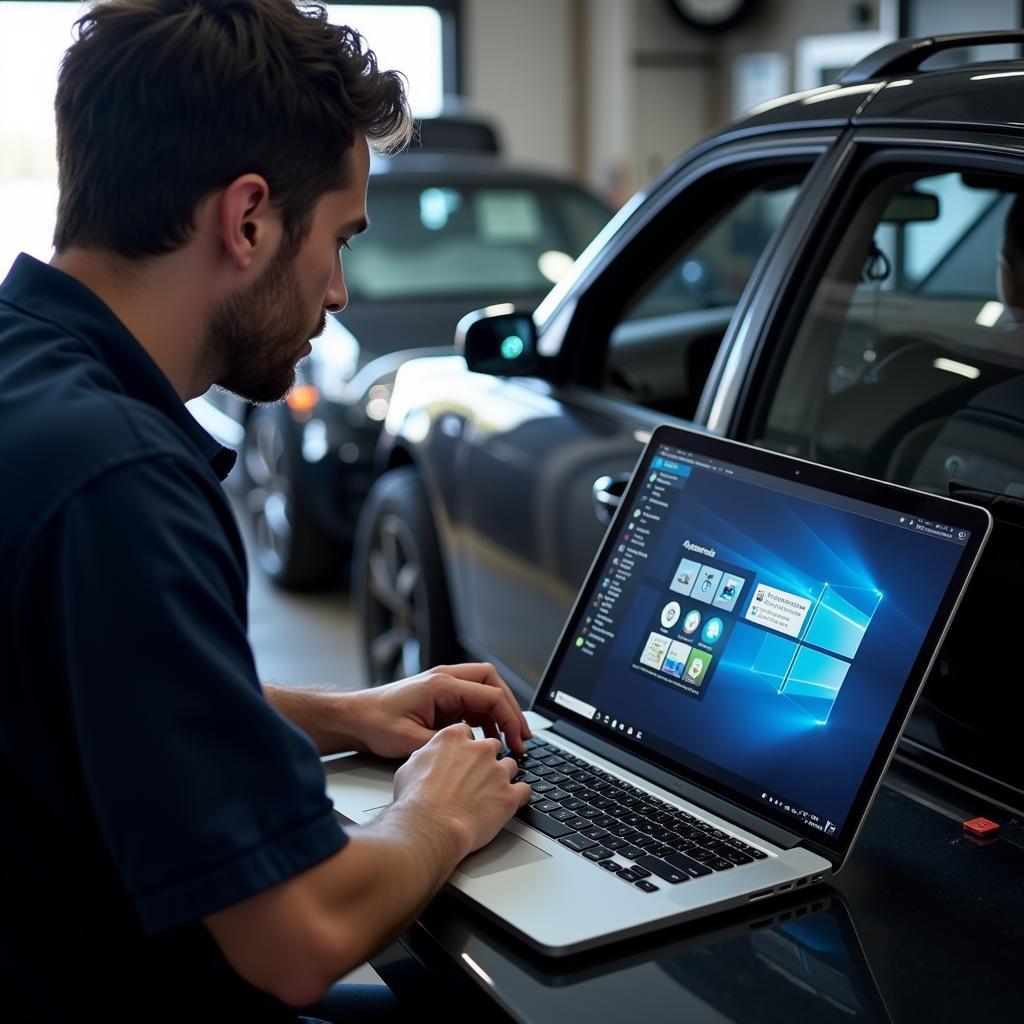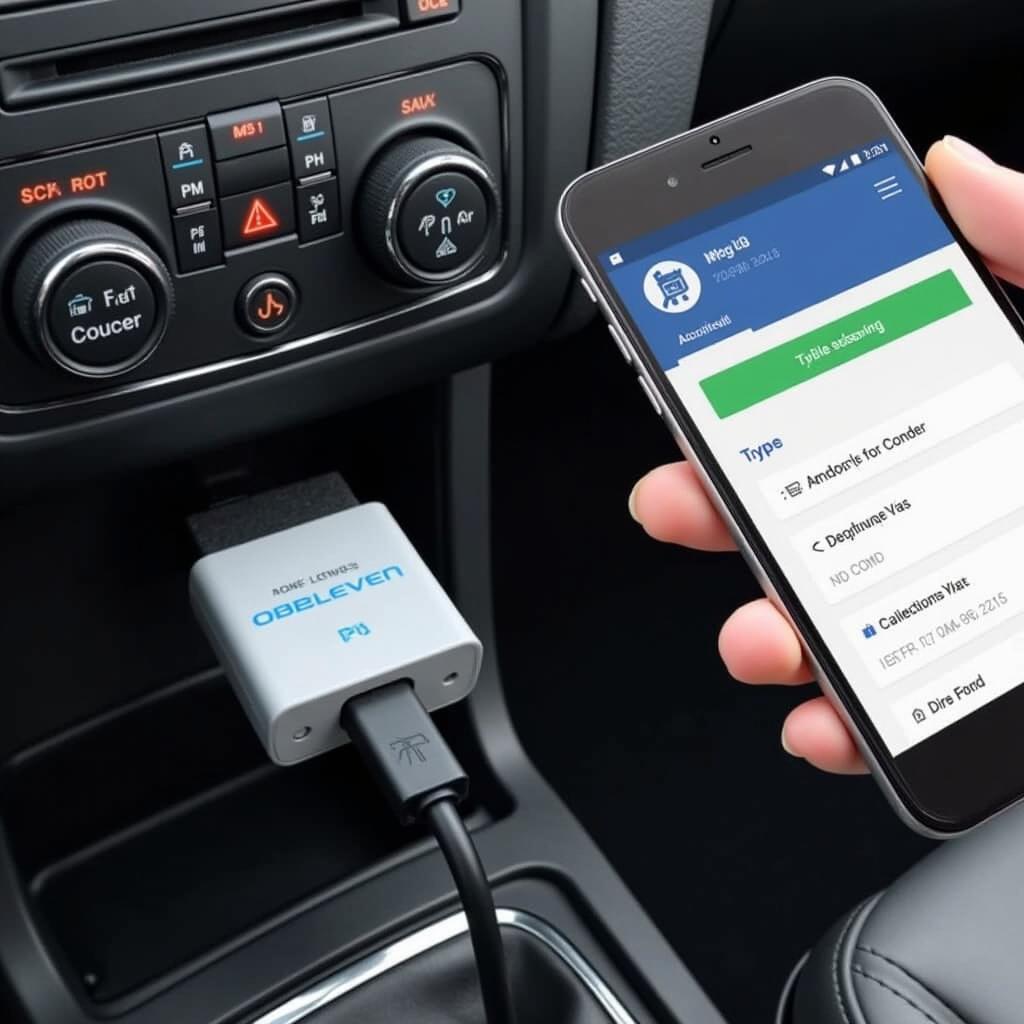The automotive industry is rapidly incorporating advanced technology, and with it comes the need for robust security measures. While most car owners are familiar with physical security, the digital realm is often overlooked. “Ssl Scan Tool Offline” is a phrase that might seem technical, but it holds the key to safeguarding sensitive data transmitted between your car’s systems and external devices. This comprehensive guide will demystify SSL scan tools, their offline capabilities, and how they contribute to a secure automotive environment.
One of the most valuable tools for an auto technician working with car software and systems is a tool to scan for credit card numbers. This type of tool can be helpful in identifying and mitigating potential data breaches.
Understanding SSL and Its Importance in Automotive
SSL, or Secure Sockets Layer, is a cryptographic protocol that establishes an encrypted link between a web server and a web browser. In simpler terms, it’s like sending your data through a secure tunnel, preventing unauthorized access. But how does this apply to your car?
Modern vehicles are equipped with Electronic Control Units (ECUs) that communicate with each other and external networks, often relying on wireless technologies like Bluetooth and Wi-Fi. This interconnectedness, while offering convenience and enhanced functionality, opens potential vulnerabilities for cyberattacks. SSL certificates and encryption protocols are crucial in securing these communication channels, ensuring data integrity and confidentiality.
Imagine this: You’re using your car’s infotainment system to connect to a public Wi-Fi network. Without proper SSL encryption, hackers could potentially intercept your data, including sensitive information like passwords and financial details.
What is an SSL Scan Tool Offline?
An SSL scan tool is a software application designed to analyze and verify the SSL/TLS configuration of a website or a network connection. It examines various aspects of the SSL certificate, including its validity, expiration date, encryption algorithms used, and potential vulnerabilities. But what sets an “offline” tool apart?
 Offline SSL Scan Tool
Offline SSL Scan Tool
An offline SSL scan tool allows you to perform these security checks without an active internet connection. This is particularly beneficial for automotive applications, where you might need to diagnose and troubleshoot connectivity issues or security vulnerabilities in a garage or workshop setting.
Benefits of Using an Offline SSL Scan Tool in Automotive
- Enhanced Security: By identifying potential weaknesses in your vehicle’s SSL/TLS configurations, you can proactively address them, minimizing the risk of data breaches and unauthorized access.
- Offline Functionality: Diagnose and troubleshoot connectivity or security issues even when you don’t have an active internet connection in your workshop.
- Cost-Effective: Prevent costly data breaches and cyberattacks by identifying and mitigating vulnerabilities early on.
- Compliance: Ensure your vehicle’s systems comply with industry standards and regulations regarding data security and privacy.
How to Choose the Right Offline SSL Scan Tool
Selecting the appropriate offline SSL scan tool for your needs depends on several factors:
- Compatibility: Ensure the tool supports the specific ECUs and communication protocols used in the vehicle you’re working on.
- Ease of Use: The tool should have a user-friendly interface, allowing technicians to navigate and interpret the scan results effectively.
- Comprehensive Reporting: Look for a tool that provides detailed reports on identified vulnerabilities, along with actionable recommendations for remediation.
Best Practices for Using an SSL Scan Tool Offline
- Regular Scans: Schedule periodic SSL scans of your vehicle’s systems to detect and address any emerging threats or vulnerabilities.
- Timely Updates: Keep your offline SSL scan tool updated to ensure it has the latest security patches and can detect newly discovered vulnerabilities.
- Professional Training: Ensure your technicians are adequately trained on using the SSL scan tool and interpreting its results accurately.
“Using an offline SSL scan tool should be a standard practice for any automotive technician,” says John Smith, Senior Cybersecurity Engineer at AutoTech Solutions. “It’s a proactive approach to securing vehicle systems and protecting sensitive data.”
Conclusion
As vehicles become increasingly interconnected, ensuring the security of their communication channels is paramount. An offline SSL scan tool provides a valuable resource for automotive technicians, allowing them to diagnose and address potential vulnerabilities even without an active internet connection. By incorporating regular SSL scans and adhering to best practices, you can significantly enhance the security of your vehicle’s systems and protect valuable data from cyber threats.
For expert assistance in choosing the right SSL scan tool for your automotive needs, contact the team at ScanToolUS at +1 (641) 206-8880 or visit our office located at 1615 S Laramie Ave, Cicero, IL 60804, USA. Our team of specialists is ready to guide you towards a more secure automotive experience.
A used car dealer vin scanner is another valuable tool to consider. VIN scanners can help identify potential issues with a vehicle’s history, such as accidents or odometer fraud, which can impact its safety and value.
FAQs
1. Can I use an offline SSL scan tool on any vehicle?
Compatibility varies depending on the tool and the vehicle’s specific ECUs and communication protocols.
2. How often should I perform an SSL scan on my vehicle?
It’s recommended to perform scans regularly, ideally every few months or after any significant software updates.
3. Is it necessary to have technical expertise to use an SSL scan tool?
While some technical understanding is beneficial, many tools offer user-friendly interfaces and guidance for effective use.
4. Can an offline SSL scan tool detect all types of vulnerabilities?
While comprehensive, no tool can guarantee the detection of all vulnerabilities. It’s crucial to maintain overall cybersecurity best practices.
5. What should I do if I detect a vulnerability during an SSL scan?
Consult the tool’s recommendations for remediation or seek assistance from a qualified automotive cybersecurity professional.


